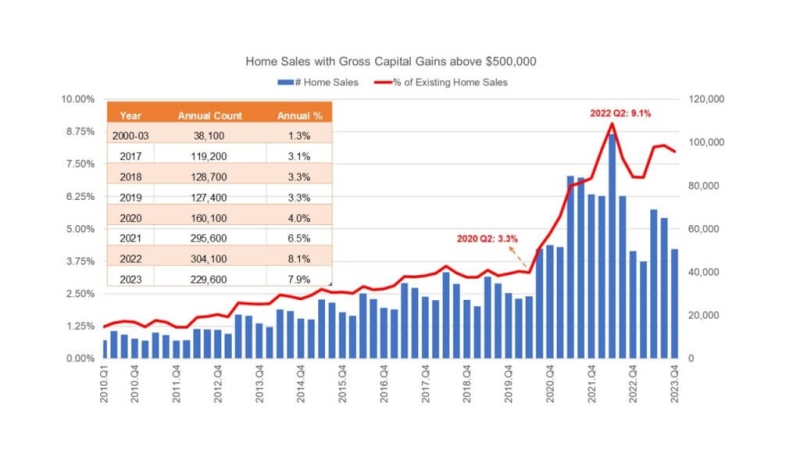Advertisement
FIT for Reverse Mortgage Lenders: Part VIII ... Out-of-Pocket Burn-Through Risk

Everyone knows there is no medical underwriting in reverse mortgage lending. So there are no health-related risks in reverse mortgages for seniors and investors, right? Wrong! For seniors with self-reported “poor health,” there are risks. However, we address just one financial risk in this article: Out-of-pocket healthcare costs’ burn-through risk. In Part VII of our “FIT for Reverse Mortgage Lenders” series, we defined burn-through risk in reverse mortgages. Let’s review our definition:
“Burn-through risk is the chance that seniors will use up their reverse capacity faster than usual and put in doubt their ability to stay at home over time and meet borrower obligations—taxes, homeowner’s insurance and home maintenance.”
Now the out-of-pocket part: Out-of-pocket healthcare costs are costs not covered by insurance that seniors must pay from their own funds. They may include insurance premiums, co-payments, deductibles and other gaps in any benefit package.
A February, 2010 study by the Urban Institute, “Will Healthcare Costs Bankrupt Aging Boomers?” says we can expect these out-of-pocket healthcare costs to rise, especially for lower-income seniors and for seniors without retiree health benefits.
And why are out-of-pocket healthcare costs expected to rise? Here are some reasons from the study:
►Rising federal and state governments debts are already resulting in cuts to entitlement programs, such as Medicaid, which help low-income seniors with serious health problems to stay at home;
►Runaway healthcare costs over the last 35 years could continue, which would further increase premiums and co-pays for Medicare;
►Possible Social Security reform could further reduce or limit retirement income;
►Tax increases could cut take-home pay and reduce cash for out-of-pocket expenses;
►Healthcare and retirement costs risk-shifting trend from employers and governments to workers continues;
►Slowing to declining income growth among seniors (no recent cost of living increases to Social Security benefits).
What did the study say about out-of-pocket health care costs for boomers? Some highlights follow:
►Between 2010 and 2040, out-of-pocket healthcare costs will more than double from $3,300 to $7,800;
►For people 65 and older, share of household income spent on healthcare will jump from 10 percent in 2010 to 19 percent in 2040;
►People 65 and older who spend more than one-fifth of their income just on healthcare will increase from 18 percent in 2010 to 35 percent in 2030 and 45 percent in 2040;
►If employers eliminate retiree health benefits, the number of seniors with rising out-of-pocket healthcare costs will leap to 52 percent by 2040;
►For seniors at the bottom fifth of the income scale, healthcare costs will jump from 21 to 39 percent of their income between 2010 and 2040.
“With out-of-pocket healthcare costs increasing more rapidly than incomes,” the study says, “the financial burden of healthcare will increase for older adults over the next few decades.”
This is why out-of-pocket healthcare costs for reverse mortgage prospects with self-reported “poor health” are risk factors. It is “yellow flag” number six in the FIT process. Originators should discuss it at the loan interview. How should you begin this delicate yet necessary conversation? Let’s try this question:
Mrs. Akuna, at FreeFloat Bank, helping you think through financial issues is a priority. The FIT paper from counseling says out-of-pocket healthcare expenses will eat up your cash. How about looking into ways to stretch cash from your reverse mortgage so that you can stay at home longer?
This question could get a reality-testing conversation going and give the prospect and the loan officer opportunity to revisit how out-of-pocket healthcare costs could burn-through her cash, as well as solutions to the out-of-pocket problem.
Let’s say the prospect came to the loan interview leaning toward a fixed-rate product for its promise of interest-rate stability. The conversation could help both prospect and loan officer to look at the growing-creditline/variable-rate HECM option, where the growth feature might act as a cost-inflation hedge.
While health or ill-health is not a factor in reverse mortgage underwriting, there are ill-health-related financial risks that seniors and lenders should be aware of. Out-of-pocket healthcare costs burn-through risk is one of them.
Atare E. Agbamu is author of Think Reverse! and more than 140 articles on reverse mortgages. Since 2002, he writes the nationally-distributed column, “Forward on Reverse.” A former director of reverse mortgages at Minneapolis-based AdvisorNet Mortgage LLC, Agbamu has years of hands-on experience marketing and originating reverse mortgages. Through his advisory, ThinkReverse LLC, Agbamu advises financial professionals, institutions and regulators across the country. In a 2007 national report on reverse mortgages, AARP cited Agbamu’s work. He can be reached by phone at (612) 203-9434 and e-mail at [email protected].
About the author





